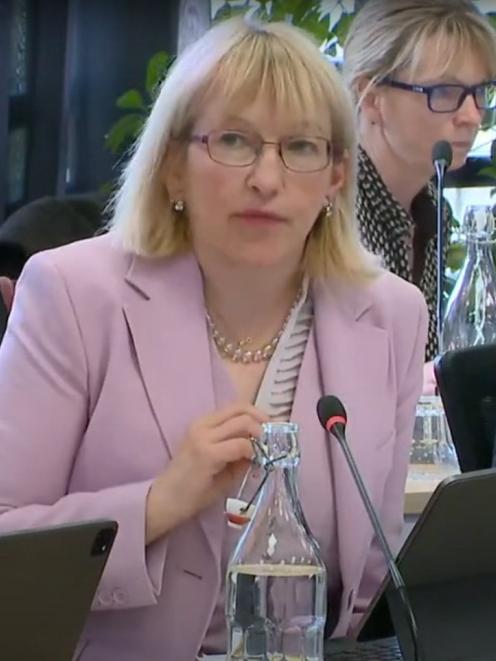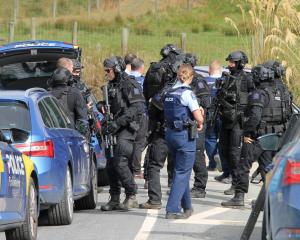
The daunting assignment put in front of Dunedin’s councillors was 1200 pages long. Staples struggled to contain the contents.
Various important subjects were covered within those pages, such as funding for events, the future of Dunedin Railways, options for alleviating flooding in South Dunedin, community housing, public toilets, playgrounds, performing arts, and investment packages to consider to bring Dunedin closer to achieving zero-carbon goals. A capital expenditure programme of more than $1.85 billion over nine years was proposed and projected rates rises were just under 10% for each of the next three financial years.
A public-excluded component of the agenda was on top of this and councillors had three days to get through it all.
The long-term plan of a council often defines the term. An immense amount of preparation is put in and it is the most crucial process for elected representatives to provide direction and to influence or decide upon what is put in and left out of budgets.
The plan is normally reviewed once every three years, but the Dunedin City Council (DCC) had a head start this time, because it decided last year to defer. The usual 10-year plan became a nine-year plan.

Any observer of the meeting would be hard-pressed to conclude it functioned well. Aspects were described by some of its participants as shambolic, farcical, stressful, tiring and "pressured". There was some agreement the third day was rushed.
Cr Carmen Houlahan referred to a "pressure cooker" situation and it was acknowledged among councillors that by the end brains were "fried", she said.
On Thursday afternoon, Cr Sophie Barker was too unwell to participate, as she was suffering from a blinding headache, she said.
Eleven straight days of council obligations and reading late at night took their toll, Cr Barker said. She described the Sunday before the meeting as a 10-hour day of reading council reports, "which was exhausting".
"Certainly, it means you don’t enter the meeting fresh, and I was knocked out by early afternoon Thursday," she said.
"My opinion is this DCC process was too pressured to make the best decisions."
Deputy mayor Cherry Lucas was one of several councillors who said council staff "drip-fed" some reports to them before the statutory deadline, which was helpful.
Even so, there was a huge volume of pages to read in a short period — 1200 in four days was tough, she said.
"I’m also conscious that in this environment we don’t necessarily make the best decisions."

Dunedin Mayor Jules Radich was having to receive advice on the fly about meeting procedure, or application of standing orders.
At one point, deep into day 3, Cr Houlahan voted "yes, but I’m not sure which option it is".
One thing she highlighted was councillors needed to multi-task, including by working on the wording of motions to be put in front of colleagues later in the meeting.
Cr Garey said long-term plan meetings were of a scope and duration that required strong, disciplined chairing, adherence to standing orders and elected members having read their papers.
This did not happen, she said.
However, the professionalism of staff was a highlight, she said.
Cr Steve Walker said the meeting was badly managed by the mayor.
By the end, a two-minute limit was placed on speeches.
Cr Walker said more emphasis seemed to be placed on a targeted finishing time than "robustly questioning, discussing and debating some fantastically important issues facing the city and our residents".
"There was a litany of farcical moments, unfortunately, but ultimately the buck must stop with the chair on this one."
Cr Walker said the mayor had not understood the Ōtepoti live music action plan and its implementation document, for example.
Cr Lucas did not agree with Crs Garey and Walker that the mayor showed a lack of understanding of standing orders.
Mr Radich had also asked councillors about starting the meeting a day early, but it seemed there was overwhelming feedback against this, she said.
"At the end of the day it’s the CEO’s agenda and she scheduled the three days and said staff were unavailable after Thursday," Cr Lucas said.
Cr Bill Acklin was one person of the view councillors only had themselves to blame.
"Councillors were informed that we had three days to complete this process and asked to keep questions and discussion succinct," he said.
"However, several councillors did not take that on board on day 1."

Cr Acklin said this did not compromise debate, but it did "seem to annoy some members that like to talk at length to every item".
Cr Andrew Whiley said the draft budgets meeting for the long-term plan were always challenging and "yes, it is tiring".
A rarely used procedure at the council was deployed on the third day — speaker numbers were limited to three for a motion and three against. The mayor seemed to have trouble establishing this in a way understood by his colleagues.
The Otago Daily Times asked the council if the meeting did a disservice to local democracy.
Asked how much responsibility the mayor took for the situation, Mr Radich had no answer before the ODT’s deadline.
The council was asked how chief executive Sandy Graham defended the procedure that was run. There was no response to this, either.
Cr Mandy Mayhem was one councillor who wanted to receive council papers earlier and said she would have preferred a fourth day of discussion, instead of the meeting being crammed into three days.
"I certainly felt rushed on the third day," she said.
"It became a race to be in the top three speakers, or not at all.
"If you were unable to catch the mayor’s eye, too late.
"Many wasted hours of thought and well-scripted wordsmithing never made it off the paper."
Cr Mayhem said there were many tough decisions that had to be made and she found it stressful.

Cr Barker said she would read 50 pages an hour and this meant there was more than 24 hours of reading from the agenda for last week’s council meeting. She also cross-referenced with the previous long-term plan, "did a lot of research on the topics, emailed dozens of pre-meeting questions, had phone calls and discussions about topics, drafted key points to help focus decision-making, and considered how to balance the budget with all that we’d love to achieve".
When speaker numbers were restricted, she ended up using questions to get points across, Cr Barker said.
"It wasn’t great that some highly important items were done at the end of a three-day meeting with pressured time and processes."
Cr Acklin acknowledged it was a huge agenda and said it "contained more detail than in the past due to requests from some councillors prior".
"This was not necessarily helpful," he said.
"At times, some councillors challenged the mayor on process, resulting in some slowing down of the meeting, which made for unnecessary delays with getting through the agenda.
"The mayor did an excellent job of managing these situations that were not easy to deal with.

And what of the results?
The council will head into public consultation with a proposed rates rise of 10.5% for 2025-26. It is proposed this would be followed by rates increases of 10.2% and 10.1%. The proposed nine-year capital expenditure programme has been bumped up to almost $1.89b.
Cr Lucas said she was extremely disappointed in her colleagues’ "lack of financial discipline".
"There were many things I would have liked to have supported, but in reality it’s about affordability."
Cr Acklin seemed content with where the draft plan for public consultation landed.
"Given the financial constraints council faces, I feel that due consideration was given to each item, and a good result was reached."
Cr Whiley said councillors were delighted with outcomes they had sought and frustrated about others that did not go their way.
"For me, personally, I am staggered by some councillors not supporting an admission charge for international visitors [to the Dunedin Public Art Gallery and Toitū Otago Settlers Museum]."
Cr Mayhem was pleased to see a "changing places" bathroom, or fully accessible toilets, on the action list.
She was happy the council had signalled extra staff would be appointed to drive the music action plan and heritage action.
Cr Barker was delighted the council was "committed to moving ahead with strong infrastructure investment in South Dunedin".
"It’s been 10 years since the big flood — it’s time for big action."
She was "hugely gratified we got a rare unanimous vote to continue our support for the Taieri Gorge train".
Cr Walker was troubled by a slim majority of the council deciding against putting in front of the public packages of high or medium investment to get nearer zero-carbon goals for the city.
The process last week had delivered sad news about community housing, professional theatre and cycling infrastructure, he said.
The positive side of the ledger included allocation of money towards completion of the Peninsula Connection roading improvement project, he said.
Various councillors said they were looking forward to seeing what the community had to say.
Over to you, members of the public.
— The council’s draft consultation document is due to be adopted on March 18, after audit. Formal consultation will run into April, the council is to deliberate in May and then adopt the nine-year plan in June.












